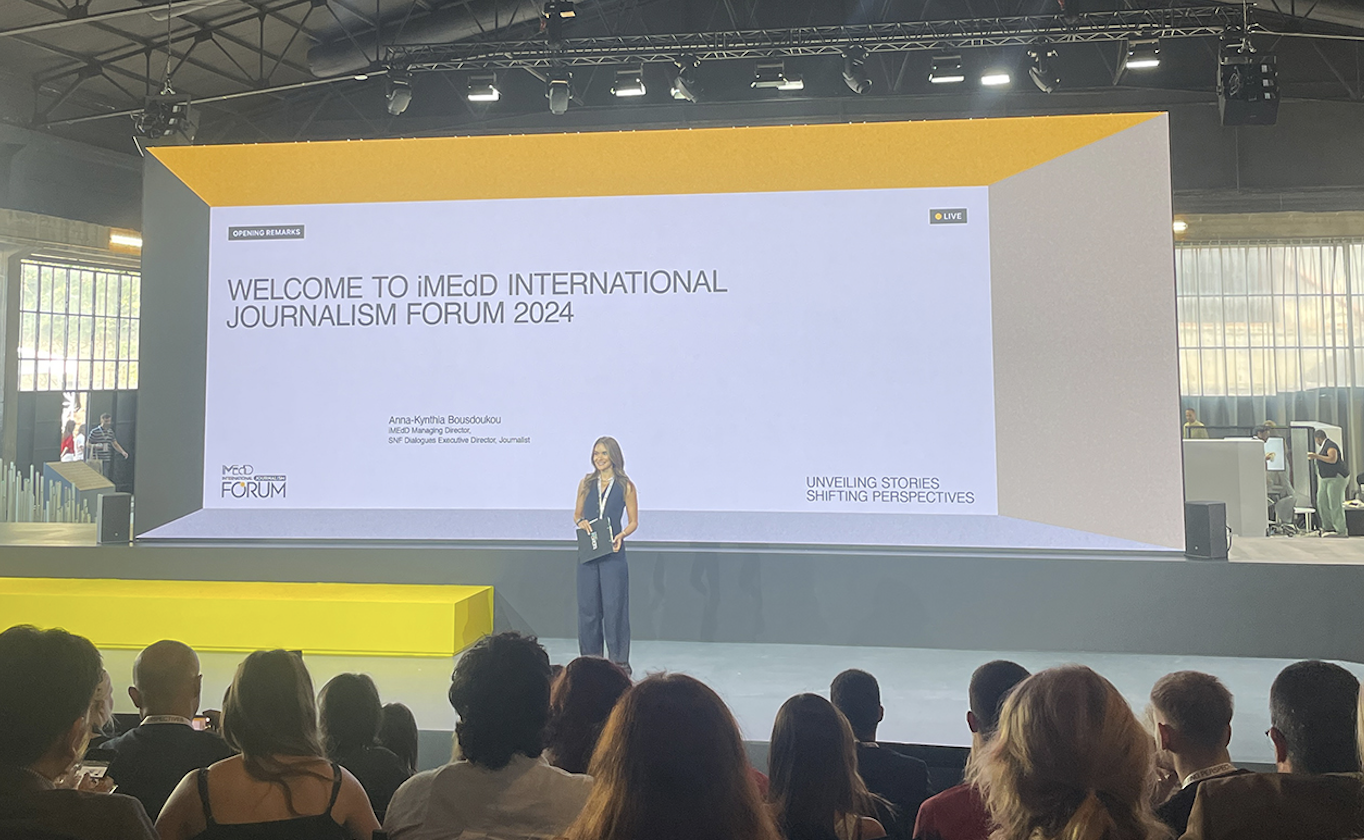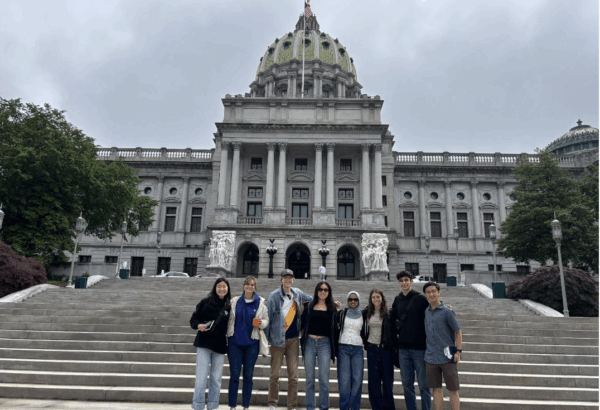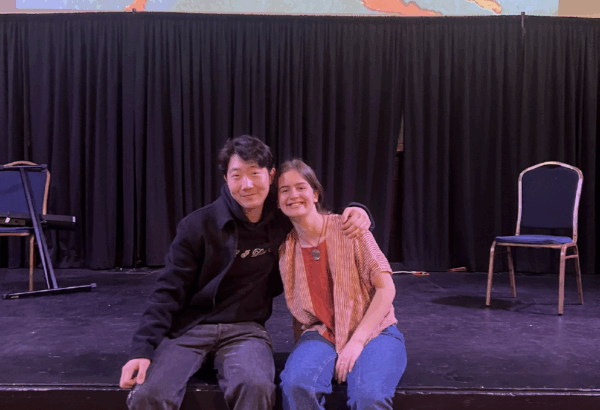We were invited to participate in a pop-up newsroom alongside students from 12 universities around the world, creating written and multimedia content about the conference for both attendees and the larger iMEdD community. We each covered aspects of the conference, a panel on investigative journalism on the food beat (Isaac) and wrote a photo essay profiling people at the forum (Anna).

This experience was extraordinary and felt once-in-a-lifetime — but it embodies what Penn’s SNF Paideia program offers students every day and the foundation of wellness, service, citizenship, and dialogue the program is built on.
Dialogue in particular was a significant takeaway from our time and experience at the iMEdD forum. Many of the speakers across a bevy of panels stressed the importance of this in all sectors of journalism, be that with fellow journalists, sources, the audience, and any people who engage with the trade. Dialogue was on very clear display with thoughtful conversations and nuanced perspectives present on the main stage for the central panels.
A panel that was particularly reflective of the values of dialogue and citizenship, and one that was uniquely pertinent to our experiences as college journalists, was a conversation with reporters from the Columbia Daily Spectator and students of Columbia’s Graduate School of Journalism, led by moderator Nina Berman, a professor of journalism at Columbia University. They shared their differing experiences and challenges covering the pro-Palestinian encampment last semester at Columbia; it was an opportunity to not just highlight coverage of rising activism on U.S. college campuses this past year, as we’ve also seen at Penn, but to emphasize the role of student journalists particularly in leading this coverage of their communities — and doing so much more successfully than mainstream outlets.
The underlying message of the forum was that journalism, and particularly student journalism, is a crucial element of facilitating open dialogue, both by providing space for it and encouraging it in readers. It is important that open dialogue, as SNF Paideia fosters, is at the forefront of and heart of journalistic practices, particularly ones pertaining to topics that spark emotion, reflection, or change in people.
Civic engagement, too, was a main focus of the forum. With panels such as how to combat news avoidance and discussions on how to reach audiences more effectively and impactfully, the iMEdD forum investigated the ways in which journalists communicate with their audiences, and the responsibility that journalists have not only to be an engaged member of the community, but to actively contribute to it in a positive way through their work.
But that’s what journalism is — it is a service job. It’s about educating the public, documenting truths, and holding institutions of power in check. Among the ongoing wave of misinformation and distrust in mainstream media, iMEdD and the SNF Paideia program advocate for integrity, engagement, and transparency in the industry.
Even after the forum wrapped, the opportunities to learn and connect with new friends in Athens did not end.
If there’s one thing that we got out of this experience, it was joining a community of people incredibly dedicated to pursuing and disseminating high-impact, accurate, fair journalism in this changing news landscape — and instilling this commitment into the next generation of media professionals.
Isaac Pollock, is a senior in the College pursuing degrees in Communication and Cinema and Media Studies. Anna Vazhaeparambil, is a senior in the College and School of Engineering pursuing a dual degree in Communication and Computer Science.




